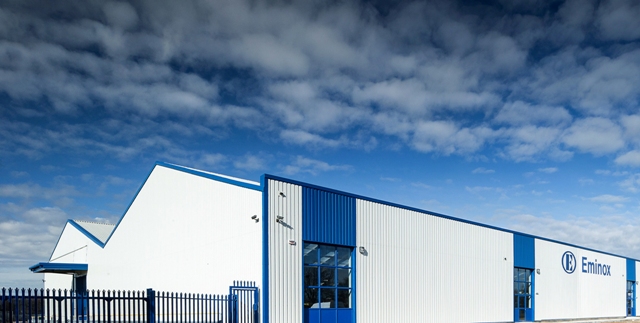Eminox, one of Europe’s leading emissions control engineering and design innovators to OEMs and the aftermarket, is delighted to have walked away with the Contribution to Sustainable Transport trophy at last night’s London Transport Awards. The company won the award for the development of its SCRT® technology that is improving the environment by dramatically reducing emissions from the capital’s bus fleet.
The category, sponsored by Go-Ahead Group, was hotly contested, with Eminox chosen ahead of other strong entries from TfL/AECOM, the London Underground and Travis Perkins Group. The Eminox SCRT® was recognised as a revolutionary breakthrough in emissions control that is enabling operators to cost-effectively upgrade older vehicles to achieve beyond even what is required of newly manufactured vehicles.
Unlike other forms of emissions control, the Eminox SCRT has been proven to deliver reductions of 88% NOx and over 50% of NO2 in real-world operation, not just on the MLTB test cycle. It is, therefore, having a significant impact on eliminating air quality hotspots and improving public health, particularly in urban environments where buses are the most significant contributor of NO2 emissions. For example, buses alone are responsible for around 10% of London’s total NOx emissions and considerably more in central areas.
“I’m delighted to accept this award on behalf of all Eminox’s hard-working employees, as well as our valued technology partners and bus operator clients,” says Jog Lall, Sales and Marketing Director, Eminox. “Their combined efforts have enabled us to make a real difference to the sustainability of public transport by achieving proven real-world emissions reductions.”
Having been developed as part of a TfL pilot programme, the Eminox SCRT continues to be rolled out nationally and internationally. Under the Clean Bus Technology fund, Eminox will be supplying SCRT systems in, Liverpool, Gateshead and Leeds, where local authorities and operators have come together to improve air quality for citizens. Widespread adoption of the technology could contribute to helping address the UK’s breaches of the EU Air Quality Directive, potentially preventing the UK government and councils from the prospect of embarrassing court appearances and significant fines.
